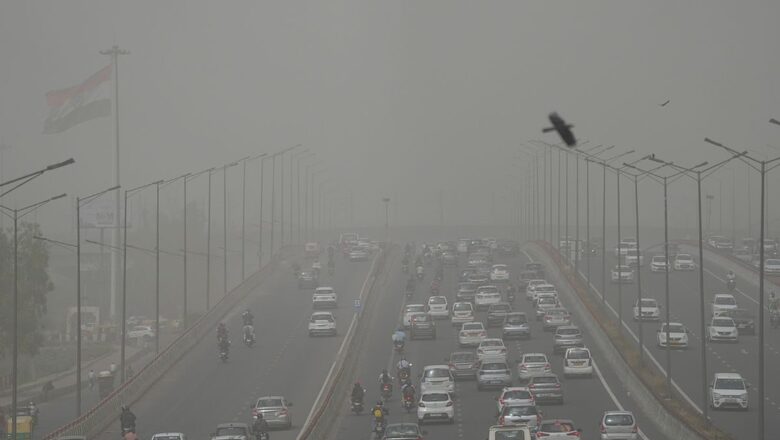
views
The current air quality crisis in the national capital and its surrounding areas has reached a critical point, prompting authorities to take steps that reflect deep concern for the well-being of the people.
Stage III of the Graded Response Action Plan (GRAP) has been triggered to tackle the escalating pollution levels, with one of the most noticeable changes being the restriction on vehicles.
This decision has been driven by mounting concerns about the impact of air pollution on public health. The GRAP, a government-led strategy, classifies actions into four stages, each responding to different levels of air quality. Stage III, enforced during ‘severe’ air quality conditions, represents a critical intervention phase.
Although GRAP 2 was previously executed, its benefits remain unclear. Notably, the smog towers erected by the Delhi government are non-functional.
The Delhi government has taken sweeping action by banning the operation of BS3 petrol and BS4 diesel cars until further notice. The city’s air quality has plunged to alarming levels, prompting stringent measures.
Under the recently enforced Stage 3 of the Graded Response Action Plan (GRAP), the Delhi government is leaving no stone unturned to address the deteriorating air quality. Any BS3 petrol or BS4 diesel vehicle found running on the streets of Delhi will be subject to a hefty fine of Rs 20,000.
The air quality index (AQI) in Delhi has reached ‘hazardous’ levels, triggering the urgency of these measures. In the Mundka area, the AQI soared to a staggering 835 on Thursday, while other regions also recorded alarming AQI levels, surpassing 700 and 600.
Delhi Chief Minister Arvind Kejriwal has announced the immediate closure of all government and private primary schools in the city for the next two days, prioritizing the health and safety of students as air pollution escalates.
Furthermore, the Delhi government has imposed a blanket ban on non-essential construction activities across Delhi-NCR and has implemented strict restrictions on the entry of diesel trucks into the national capital. These proactive steps are part of a comprehensive strategy to curb air pollution and safeguard the health of Delhi’s residents.




















Comments
0 comment